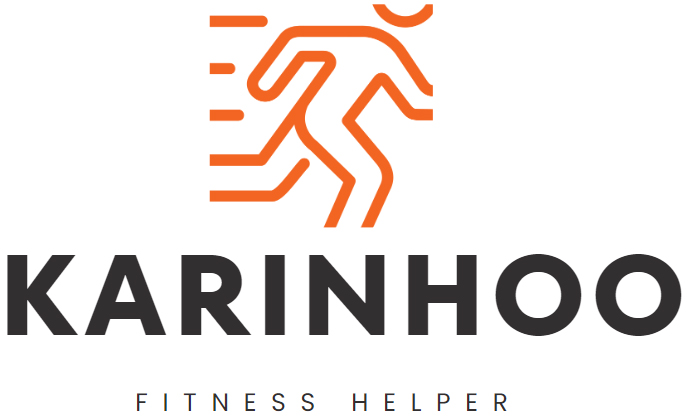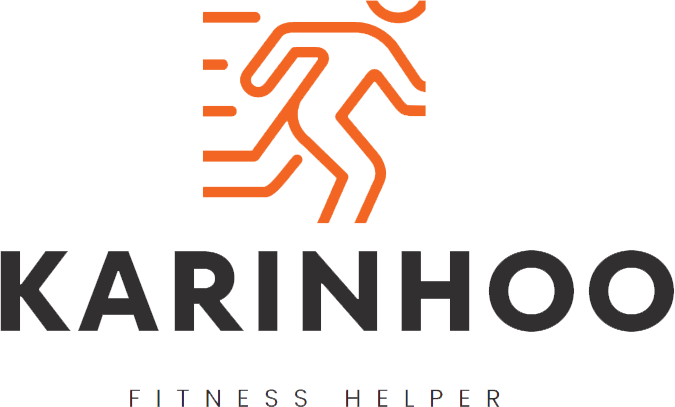Importance of Proper Nutrition for Marathoners on a Weight Loss Mission
Proper nutrition plays a crucial role in the success of marathoners who are on a weight loss mission. Fueling your body with the right nutrients not only provides the energy you need for training and racing, but it also helps you achieve your weight loss goals. By focusing on nutrition, you can optimize your performance and shed those extra pounds.
One of the key aspects of nutrition for marathoners on a weight loss mission is finding the right balance between calorie intake and expenditure. It is important to consume enough calories to fuel your training and recover properly, while also creating a calorie deficit to facilitate weight loss. This means paying attention to portion sizes and choosing nutrient-dense foods that are lower in calories but still provide essential vitamins and minerals.
In addition to calorie balance, marathoners on a weight loss mission should also pay attention to the quality of their macronutrients. Carbohydrates are the primary source of fuel for endurance exercise, so incorporating complex carbs like whole grains, fruits, and vegetables into your diet is essential. These foods provide sustained energy and help prevent energy crashes during long training runs.
Protein is another important nutrient for marathoners, as it aids in muscle repair and recovery. Including lean sources of protein such as chicken, fish, beans, and tofu in your meals can help support your training while also promoting weight loss. Healthy fats, like those found in avocados, nuts, and olive oil, are also important for overall health and satiety.
Meal planning is an effective strategy for marathoners on a weight loss mission. By preparing meals in advance, you can ensure that you have healthy options readily available, reducing the temptation to make impulsive food choices. Planning your meals around a balance of macronutrients, with an emphasis on whole foods and plenty of fruits and vegetables, can help you stay on track with your weight loss goals while fueling your training.
Hydration is another crucial aspect of nutrition for marathoners. Proper hydration promotes optimal performance and aids in recovery. Drinking enough water throughout the day, as well as during and after workouts, is essential. Electrolyte-rich sports drinks can also be beneficial during longer training sessions to replace lost fluids and minerals.
Nutrition plays a vital role in the success of marathoners who are on a weight loss mission. By focusing on calorie balance, macronutrient quality, meal planning, and hydration, you can optimize your training and achieve your weight loss goals. It is important to consult with a registered dietitian or sports nutritionist to develop a personalized nutrition plan that meets your unique needs and supports your marathon training. Fuel your body properly and watch as you perform at your best while shedding those extra pounds.
Key Nutrients for Fueling Marathon Training and Weight Loss
Proper nutrition is essential for marathoners on a weight loss mission as it provides the necessary fuel to sustain energy levels during training while promoting weight loss. When it comes to fueling your body for long-distance running and shedding those extra pounds, certain nutrients play a crucial role in optimizing performance and supporting weight loss goals.
1. Carbohydrates: Carbs are the primary energy source for endurance activities like marathon training. Incorporate complex carbohydrates such as whole grains, fruits, and vegetables into your diet to provide sustained energy throughout your runs. These nutrient-rich foods also support weight loss by helping you feel fuller for longer periods, preventing overeating.
2. Protein: Including adequate protein in your diet is vital for repairing and rebuilding muscles post-workout. Consuming lean sources of protein like chicken, fish, tofu, and legumes can aid in muscle recovery while promoting weight loss by boosting your metabolism. Aim for a balanced intake of protein throughout the day, including pre and post-workout meals.
3. Healthy Fats: Contrary to popular belief, healthy fats are essential for marathoners on a weight loss mission. Foods like avocados, nuts, seeds, and olive oil are rich in monounsaturated and polyunsaturated fats that provide a concentrated source of energy. Including these fats in your diet can help curb hunger and maintain stable blood sugar levels.
4. Hydration: Staying properly hydrated is crucial for both performance and weight loss. Aim to drink water throughout the day and especially during your training sessions. Electrolytes are also essential for hydration and can be replenished through natural sources like coconut water or electrolyte-rich sports drinks.
5. Vitamins and Minerals: Nutrient-rich foods are essential for overall health and well-being. Make sure your diet includes a variety of fruits, vegetables, and whole grains to ensure an adequate intake of essential vitamins and minerals. These nutrients support immune function, reduce inflammation, and aid in recovery.
While focusing on these key nutrients, it’s also important to remember that total caloric intake should align with your weight loss goals. Work with a registered dietitian or sports nutritionist to determine the right balance of calories for your individual needs. Keep in mind that every individual is unique, and nutrition requirements may vary based on factors such as gender, age, weight, and training intensity.
Proper nutrition is vital for marathoners on a weight loss mission. By fueling your body with the right nutrients, such as carbohydrates, protein, healthy fats, and essential vitamins and minerals, you can optimize your performance while shedding unwanted pounds. Remember to stay hydrated and consult with a professional for personalized guidance to help you reach your weight loss and marathon training goals.
Fueling the Long Run: Nutrition Tips for Marathoners on a Weight Loss Mission
When it comes to marathon training, nutrition plays a crucial role in both performance and weight loss. Marathoners require a balance of key nutrients to fuel their training sessions and support their body’s needs for optimal performance. In order to achieve this balance, it is important to understand how to properly balance caloric intake and expenditure while incorporating the right types of foods into your diet.
To begin with, marathoners on a weight loss mission should focus on getting the right amount of carbohydrates, protein, and healthy fats. These macronutrients are essential for sustained energy levels and muscle repair and growth. Carbohydrates are the primary source of fuel for endurance athletes, so it is important to include complex carbohydrates like whole grains, fruits, and vegetables in your diet. These foods provide a steady release of energy and help maintain stable blood sugar levels.
Protein, on the other hand, is important for repairing and building muscles. It is recommended to consume a moderate amount of protein with each meal, focusing on lean sources such as chicken, fish, tofu, and legumes. Healthy fats like avocados, nuts, and olive oil should also be included in the diet as they provide essential fatty acids and help promote satiety.
When it comes to caloric intake, marathoners need to strike a balance between consuming enough calories to support their training and creating a calorie deficit for weight loss. It is important to consult with a registered dietitian or sports nutritionist to determine the appropriate caloric intake based on individual factors such as age, gender, weight, and activity level. By gradually reducing caloric intake while maintaining nutrient-rich foods, marathoners can achieve weight loss without compromising their energy levels or performance.
Meal planning and preparation are essential for marathoners on a weight loss mission. By planning and preparing meals ahead of time, marathoners can ensure they have access to healthy, balanced meals throughout their training. This also helps avoid impulsive food choices or reliance on processed foods. a variety of colorful fruits and vegetables, whole grains, lean proteins, and healthy fats into each meal will provide the necessary nutrients for optimal performance and weight loss.
In addition to proper nutrition, hydration and recovery are also key aspects of marathon training for weight loss. Staying hydrated helps maintain optimal performance and aids in weight loss by reducing hunger and promoting satiety. It is recommended to drink water throughout the day, both during training sessions and at other times. Electrolyte-rich sports drinks can also be beneficial during longer training sessions or races.
Recovery plays a crucial role in both performance and weight loss. Adequate rest and sleep are essential for muscle repair and growth, as well as hormone regulation. Proper post-workout nutrition, including a combination of carbohydrates and protein within the first 30 minutes after exercise, helps replenish energy stores and supports muscle recovery.
Marathoners on a weight loss mission should focus on proper nutrition to fuel their training and support their weight loss goals. By incorporating the right balance of carbohydrates, protein, and healthy fats, while managing caloric intake and expenditure, marathoners can optimize their performance while achieving weight loss. Proper meal planning strategies, hydration, and recovery techniques are also important for success in marathon training. Remember to consult with a registered dietitian or sports nutritionist for personalized guidance tailored to your specific needs.
Meal Planning Strategies for Marathoners on a Weight Loss Mission
Proper meal planning is crucial for marathoners who are also on a weight loss mission. Balancing the nutritional needs of your training while creating a calorie deficit can be challenging, but with the right strategies, it can be done effectively. Here are some meal planning tips to help fuel your long runs and support your weight loss goals:
-
Calculate Your Caloric Needs: Start by determining your daily caloric needs based on your activity level and weight loss goals. A general rule of thumb is to aim for a calorie deficit of 500-1000 calories per day to achieve a healthy and sustainable weight loss. Remember that intense marathon training requires extra fuel, so be sure to account for that in your calculations.
-
Focus on Nutrient-Dense Foods: When planning your meals, prioritize nutrient-dense foods that provide essential vitamins, minerals, and macronutrients. Include a variety of fruits, vegetables, whole grains, lean proteins, and healthy fats in your diet. These foods will not only provide the necessary fuel for your workouts but also help you feel satisfied and avoid cravings.
-
Prioritize Protein: Protein is essential for muscle repair and recovery, especially during intense training periods. Include lean sources of protein such as chicken, turkey, fish, tofu, beans, and legumes in your meals. Aim for a palm-sized portion of protein with each meal to meet your needs.
-
Optimize Carbohydrate Intake: Marathon training requires a significant amount of carbohydrates to fuel your long runs and maintain glycogen stores. However, it’s important to choose complex carbohydrates like whole grains, sweet potatoes, brown rice, and quinoa. These carbs provide sustained energy and contain more fiber and nutrients compared to refined carbohydrates.
-
Be Mindful of Portions: While it’s important to fuel your body adequately, portion control is key when it comes to weight loss. Use visual cues to gauge appropriate portion sizes, such as a deck of cards for protein or a tennis ball for grains. Consider using smaller plates and bowls to help control portion sizes and prevent overeating.
-
Plan and Prep Ahead: To stay on track with your meal plan, take the time to plan and prep your meals in advance. Schedule specific times for grocery shopping and meal prepping to ensure you have nutritious options readily available. Consider batch cooking, using slow cookers, or preparing meals in advance that can be easily reheated during busy training days.
-
Stay Hydrated: Proper hydration is essential for marathon training and weight loss. Drink enough water throughout the day to stay hydrated and support optimal performance. Carry a water bottle with you during your training runs and refill it regularly.
Remember, it’s important to listen to your body and make adjustments to your meal plan as needed. Consult with a registered dietitian or nutritionist to create a personalized meal plan that meets your specific needs. With proper meal planning and a balanced approach, you can fuel your long runs while on a weight loss mission and achieve your marathon goals.
Fueling the Long Run: Nutrition Tips for Marathoners on a Weight Loss Mission
Marathon training requires immense dedication, discipline, and careful attention to nutrition. For individuals on a weight loss mission, it becomes even more crucial to strike the right balance between fueling their training and achieving their weight loss goals. Here are some hydration and recovery tips for marathoners focused on weight loss-oriented training:
First and foremost, staying properly hydrated is key. Proper hydration not only aids in optimal physical performance but also supports weight loss efforts. It’s important to drink water regularly throughout the day, not just during exercise. Aim for at least eight glasses of water per day, and increase this intake on days when you have intense training sessions.
During training, it’s essential to replace lost fluids. Hydrating with water alone might not be enough, especially for longer runs or workouts lasting over an hour. Consider incorporating sports drinks or electrolyte solutions to replenish essential minerals lost through sweat. These drinks provide carbohydrates and electrolytes, which aid in maintaining fluid balance and providing energy during extended periods of exercise.
Recovery nutrition is equally important in supporting weight loss and marathon training. After a workout, focus on consuming a snack or meal that combines carbohydrates and protein. This combination helps replenish glycogen stores and aids in muscle repair and growth. Opt for whole foods such as fruits, vegetables, lean proteins, and whole grains.
For individuals on a weight loss mission, it’s crucial to strike the right balance between caloric intake and expenditure. While it might be tempting to drastically reduce calorie intake, this can be detrimental to both performance and long-term weight loss goals. Instead, focus on consuming nutrient-dense foods that provide the necessary fuel for training while supporting your weight loss efforts.
Meal planning is an effective strategy for marathoners on a weight loss mission. Plan your meals in advance, ensuring they include a good balance of macronutrients – carbohydrates, proteins, and fats. Incorporate an adequate amount of high-quality protein, which supports muscle repair and growth. Opt for complex carbohydrates that provide sustained energy, such as whole grains, fruits, and vegetables. Include healthy fats from sources like nuts, seeds, and avocados to support overall health and satiety.
Marathoners focused on weight loss should prioritize proper hydration, especially during intense training sessions. Incorporate sports drinks or electrolyte solutions to replenish lost fluids and maintain electrolyte balance. Focus on recovery nutrition by consuming a combination of carbohydrates and protein to replenish energy stores and aid in muscle repair. Strike a balance between caloric intake and expenditure, ensuring nutrient-dense meals that support training while promoting weight loss. By fueling your body with the right nutrients, you can achieve your marathon goals while shedding unwanted pounds along the way.
Conclusion
Proper nutrition plays a vital role in the success of marathoners who are on a weight loss mission. By understanding the importance of fueling the body with the right nutrients, marathoners can achieve their weight loss goals while still performing at their best. Balancing caloric intake and expenditure is key to optimize performance and weight loss, while meal planning strategies help ensure proper nutrition. Additionally, staying hydrated and prioritizing recovery are essential for weight loss-oriented marathon training.
When it comes to marathon training and weight loss, fueling the body with the right nutrients is crucial. By focusing on key nutrients such as carbohydrates, protein, and healthy fats, marathoners can support their training and weight loss efforts. Carbohydrates provide the necessary energy for long runs, while protein helps repair and build muscle. Healthy fats aid in satiety and provide essential omega-3 fatty acids. It is important to include a variety of nutrient-dense foods in the diet to meet these needs.
Finding the right balance between caloric intake and expenditure is essential for optimal performance and weight loss. While it may be tempting to drastically cut calories, it is important to fuel the body adequately to support training. Monitoring portion sizes and focusing on whole, unprocessed foods can help create a calorie deficit while still providing the necessary nutrients. Working with a registered dietitian can be beneficial in developing a personalized nutrition plan that meets individual needs.
Meal planning is a valuable strategy for marathoners on a weight loss mission. By planning ahead and preparing meals in advance, marathoners can ensure they have nutritious options readily available. This reduces the likelihood of relying on convenience foods or making unhealthy choices. a balance of lean proteins, whole grains, fruits, and vegetables in each meal can help marathoners meet their nutritional needs while promoting weight loss.
Hydration is another important aspect of marathon training and weight loss. Proper hydration aids in digestion, nutrient absorption, and temperature regulation, among other essential bodily functions. It is recommended to drink water throughout the day and monitor urine color to gauge hydration levels. During training runs, carrying a water bottle or using a hydration pack can help maintain hydration. Electrolyte-rich beverages can also be beneficial for longer runs or when training in hot weather.
Prioritizing recovery is crucial for weight loss-oriented marathon training. Adequate rest, sleep, and nutrient replenishment are essential for muscle repair and growth. Consuming a balance of carbohydrates and protein immediately after a run or workout can help kickstart the recovery process. Additionally, incorporating active recovery strategies such as foam rolling, stretching, and low-intensity exercise can aid in muscle recovery and prevent injury.
Proper nutrition is essential for marathoners on a weight loss mission. By understanding the importance of key nutrients, balancing caloric intake and expenditure, implementing meal planning strategies, staying hydrated, and prioritizing recovery, marathoners can optimize their performance while achieving their weight loss goals. With a well-rounded approach to nutrition and training, marathoners can fuel their bodies for the long run and achieve their desired results.






